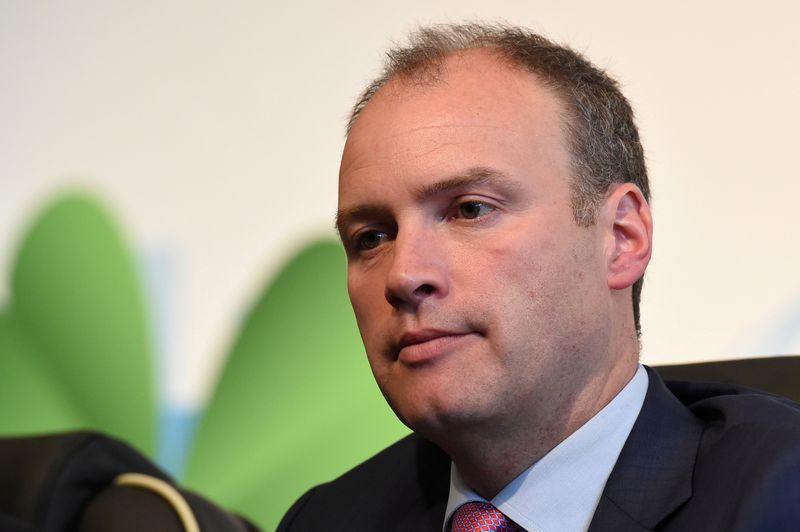Hard lessons help AerCap boss Kelly rebuild air finance titan By Reuters

By Tim Hepher and Conor Humphries
DUBLIN (Reuters) – When Irishman Aengus Kelly got his first job in aircraft leasing in 1996 it was with a firm so down on its luck the American giant General Electric (NYSE:GE) had an option to buy it for one dollar.
Three years earlier, GE had taken over the jewels of ruined Irish leasing empire Guinness Peat Aviation for $1.3 billion and renamed it GECAS, while the discarded rump that hired the young accountant Kelly was left with GPA’s “bad assets.”
On Wednesday, Kelly completed a dramatic 25-year turnaround with a $30 billion acquisition of GECAS by AerCap, the direct corporate descendant of the assets spurned by GE when it rescued the business built by legendary Irish entrepreneur Tony Ryan.
It is a reminder of the risks and sometimes spectacular rewards inherent in a discreet and largely Dublin-based industry that owns 40% of the world’s airline fleets.
The deal marries AerCap, already the world’s largest lessor following earlier acquisitions, with No. 2 GECAS to create an industry titan with more than 2,000 jetliners and relations with most key airlines.
After effectively reuniting the two wings of Ryan’s empire by buying GECAS, Kelly vowed not to let Ireland’s new AerCap-controlled leasing giant suffer the same fate as GPA.
“Those lessons were imprinted into me. You cannot run this business with a short-term liability structure or a balance sheet that is not conservative,” Kelly said in an interview.
“The lessons were hard-learned. I won’t lie to you, but they’ll never be forgotten.”
Known for his focus on managing risk, the 47-year-old Dubliner is a very different character from Ryan, whose highly leveraged bets built but then destroyed a leasing behemoth.
While Ryan’s career was a rollercoaster that saw his fortune destroyed before a punt on budget airline Ryanair rebuilt it, Kelly’s rise has been slow and steady.
His strategy has been to keep the balance sheet strong to swoop on killer deals when times are tough for rivals.
ASSET VALUES
Kelly noted that AerCap had bought GECAS for less than its assets were worth on GE’s balance sheet, a move that GE said would trigger a $3 billion charge.
“No other company in aircraft leasing has ever done an M&A trade below book (value). Aercap has done it four times. Why are we able to do that? Because of our conservative balance sheet, because it puts us into a position to act when times are tough.”
However, several aircraft transactions have been followed by asset writedowns by the buyer. Industry executives warned there was a risk of further pressure on the value of the assets being bought by AerCap as the coronavirus crisis hammers airlines.
“There’s always a risk … but you price all that in when you do the transaction,” Kelly said.
He also dismissed any concerns over $25 billion of fresh debt, saying AerCap had kept a coveted investment-grade rating.
That still leaves a leasing monolith roughly three times the size of its nearest rival facing questions over its size.
Kelly had himself flagged concerns about growing too big at an Airfinance Journal conference in January last year, when he suggested a fleet of about 2,000 jets would be tricky to run.
On Wednesday, he said he was confident AerCap could manage the volume of business without having to push down the price it charges airlines simply to keep up with the fleet turnover.
A significant number of low-value regional jets in GECAS’ portfolio have been placed until the end of their life, and GECAS has switched a significant number of narrowbodies to freight, he said.
All eyes are now on whether the next tier of lessors will be driven towards further consolidation or press regulators to exact concessions.
After the long road back from predecessor GPA’s downfall, Kelly vaunted AerCap’s credentials as an independent lessor competing with the units of major banks. But other executives said suppliers, airlines and lessors are still digesting the deal.
“It’s a huge market … There’s plenty of competition out there,” Kelly said. “We’re competing every day against the behemoth of the biggest banks in the world that own aircraft leasing companies.”

